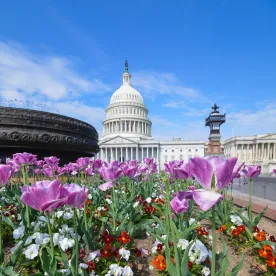A framework for reconciliation finally emerges. The Biden Administration proposes repeal of a Trump-era regulatory review rule.
Congress
Build Back Better Reconciliation Framework Released with Pared Down Health Agenda
On Thursday morning, Democrats released a topline framework and factsheet for the President’s Build Back Better bill outlining $1.75 trillion in spending in with up to $1.995 trillion in offsets. Legislative text for a preliminary draft was posted at the Rules Committee later that day. The framework represents a pared-down agenda from the House version of the Build Back Better Act that previously was projected to cost $3 trillion. The new proposal includes many of the Biden Administration’s signature efforts, including $130 billion for an extension through 2025 of expanded ACA tax credits that help make premiums more affordable for individuals and families. It also creates a free coverage option for low-income individuals in states without Medicaid expansion. Home and community-based care services will see an investment of about $150 billion—significantly lower than the $400 billion called for by President Biden this summer. This funding seeks to get Medicaid beneficiaries off waiting lists for HCBS services by expanding and improving the home care workforce. Several targeted provisions, such as the inclusion of Medicaid continuous eligibility requirements, a state option for extended postpartum coverage, significant investments in maternal health programs and major investments in pandemic preparedness also remain in the Rules Committee print.
With regard to the addition of dental, hearing and vision benefits to Medicare, only hearing benefits made the cut. Also absent from the current version, is significant drug pricing reform, though conversations are underway to try to revive a proposal that can achieve unanimous support. Funding to establish the Advanced Research Projects Agency for Health is not in the bill, as it is unlikely to be able to conform with the Byrd rule in the Senate.
Refinements and amendments to the text are likely in the coming days as Democrats iron out final details, and a target date for a vote has not yet been announced. Following the release of the framework and initial text, House Democratic leadership had sought to garner the support of the progressive flank to vote and pass the Senate’s bipartisan physical infrastructure bill last night. However, Democrats were unable to come to an agreement within their caucus and entered the weekend without a vote.
Administration
The Department of Health and Human Services (HHS) Proposed to Repeal SUNSET Rule
The “Securing Updated and Necessary Statutory Evaluations Timely” or “SUNSET” rule, issued under the Trump Administration would have required a mandatory agency review for nearly all HHS regulations. If the agency determined that a given regulation was no longer relevant, or necessary, or completed a full review of a regulation, it would simply expire. The final rule provided for a five-year period for HHS to review all regulations that were already more than 10 years old by the final effective date. Several stakeholder groups were extremely concerned about the administrative burden and volatility this would have introduced into the nation’s healthcare system. The Biden Administration previously placed it on a regulatory freeze and is now proposing to repeal the regulation outright. In the proposed repeal, HHS outlined concerns with the strategic, operational and even potential legal challenges the rule would have created. Comments on the proposed repeal close December 28, 2021.
The Health Resources and Services Administration (HRSA) Outlined Strategies to Address Workforce Shortages
On Tuesday, HRSA released a health workforce Strategic Plan as required by the Coronavirus Aid, Relief, and Economic Security (CARES) Act. Recognizing the concerns related to health care staffing, the plan’s four goals address appropriately resourcing communities to meet localized needs and enhancing quality through data-driven strategies. The plan is part of an outline of how HHS will use the $7.6 billion for the public health workforce provided in American Rescue Plan Act. Tactics outlined in the plan include targeted financial support and proper incentives to promote better distribution of workers as well as data-based forecasting to anticipate labor needs.
Podcast
-
Listen Here: This is the first of our two-part series examining the five key healthcare priorities in the President’s economic agenda. This week, Debbie Curtis, Amy Kelbick, and Rodney Whitlock explore the proposed changes in the areas of expanding the Affordable Care Act and filling in Medicaid gaps.
Quick Hits
-
HHS released an Overdose Prevention Strategy grounded in prevention, harm reduction, treatment and long-term supports for individuals with substance use disorder.
-
The U.S. Food and Drug Administration and National Institutes of Health have formed a public-private partnership to spur innovation and development of novel gene therapies.
-
The Centers for Medicare and Medicaid Services (CMS) approved a New Jersey Medicaid demonstration amendment extending postpartum coverage.
-
The Texas Medical Association filed a complaint in U.S. District Court asking it to strike down provisions in the recently issued interim final rule implementing the independent dispute resolutions provisions of the No Surprises Act. The complaint, among other things, claims that the Departments acted unlawfully in creating a rebuttable presumption that the offer closest to the qualifying payment amount is the appropriate offer and ask the court to strike those provisions.
Next Week’s Diagnosis
Congress will continue to work on legislative text for reconciliation. CMS is likely to begin releasing the final Medicare payment rules for a number of healthcare settings.







 />i
/>i
